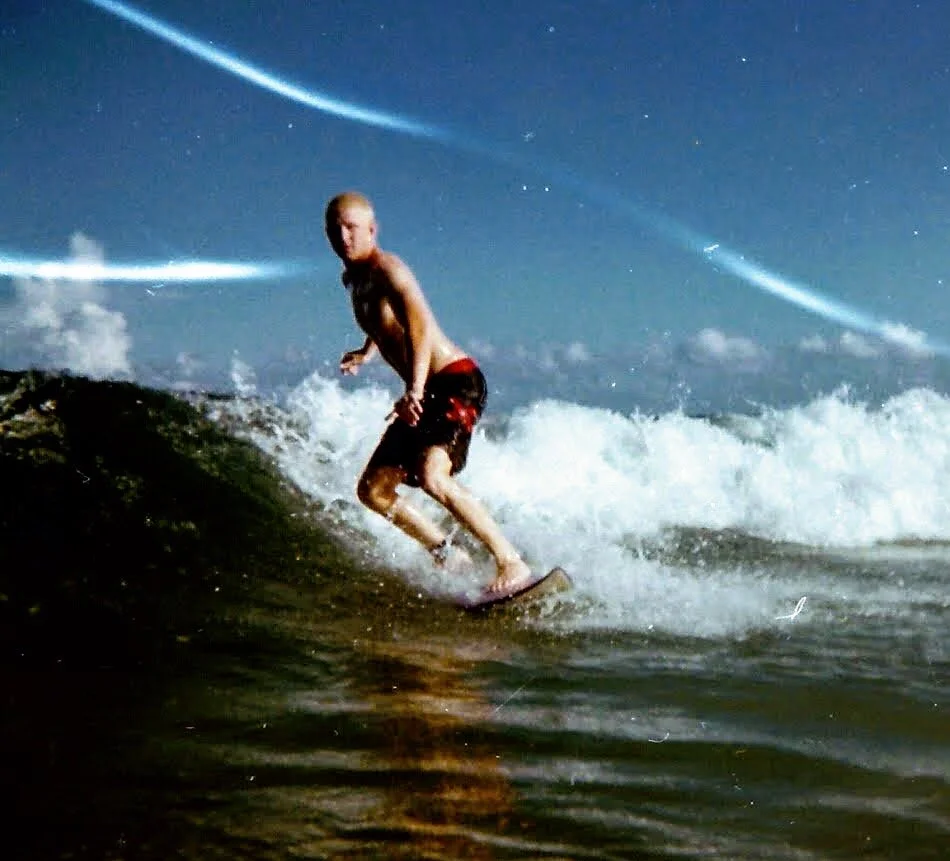How surfing changed my world, part 2
I last posted about the spontaneous moment that I found surfing as a young teenager on Long Island, but I didn’t even get to the point where I got in the water with my first board. Let me delve into the memory banks and bring you back to that first season wrestling my new board around in the ocean and learning exactly how much I didn’t know about surfing. Which was pretty much everything.
Have you ever given surfing a try, once, maybe a handful of times? Did you quickly realize that standing up took incredible timing, skill, and luck, and simply sitting on the board looked so easy, yet you kept tipping over like a drunk rubber ducky? That’s probably how it went for you because that’s how it goes for 99.7% of all beginners. Surfing is hard, like really hard, especially if you intend to get past the beginner phase. Most never do. Data and personal observations also reflect that starting any time after the early to mid-teen years means you have almost no chance of ever getting really good at riding waves. Proficient, maybe; but when it comes to ripping and surfing critical waves, the earlier in life you start, the better your odds of building the quick reflexes and muscle memory essential for the task.
My first attempts at surfing were at Gilgo Beach, which was and still is a proper beginner’s wave. It’s mushy and slow, hence the spot picking up the moniker Gilslow. I’d read up on some pointers for learning how to surf, and I took to riding the whitewater on the inside, getting to feel the balance of the board underneath me, how to paddle and duckdive, and how to sit without tipping the canoe. Every step was difficult, the board cumbersome compared to the bodyboard I was used to. I managed to catch plenty of whitewater waves, but I couldn’t pop to my feet and actually ride. I’d wobble and fall every which way, over and over again, until my shoulders turned to wet noodles, rendering me useless. Since I was 15 and didn’t drive yet, dad drove me to the beach. After the first couple of times, I think he expected me to throw in the towel. I’d shiver as I changed out of my wetsuit, dozens of waves caught — and zero successful attempts to stand up, but I keep pushing him to take me whenever we had a few hours available because I was determined to be standing up consistently by the summer.
Up to now, learning how to surf sounds like no fun. That’s exactly the reason that adults generally don’t advance past the awkward beginner stage. They’ve even earned the nickname Val, which stands for “vulnerable adult learner”, a provocative yet apt description. I think most learners expect some type of AHA moment, that, like riding a bike, surfing will somehow just click, but surfing doesn’t work that way. The ocean is wiggly, moody, and humbling, and in no way resembles the static surfaces we humans are familiar with negotiating.
AHA moments in learning to surf do exist, it just takes time, patience, and fortitude to realize them. Dad drove me to Gilgo and back several times in the first few weeks, and the best I could do was stumble to my feet for a very uneasy beat or two. I grew frustrated with catching whitewater waves and stumbling to my feet in the turbulence, so I ventured outside into the lineup proper, to catch a green, unbroken wave and see if that would change my fortunes. I pearled over and over, then finally got things right, scratched to my feet, and I felt like I was flying. A world of difference from the inside whitewater jumble I’d been existing in. I’d only rode straight in for about 8 seconds, but AHA! I was hooked on the feeling.
The next AHA moment was a few days later. The waves were a beginner’s delight; 2-3 foot gentle wind swell peaks with no wind. The ocean surface was like glass, the waves as user-friendly as they get. I had gotten my popup pretty wired and I could ride most waves for a good distance straight-in, but I really wanted to ride the wave face properly the way the better surfers were doing. A wave with a perfectly tapered wall came to me, I caught it and popped to my feet, but this time I nursed the crudest of bottom turns and ended up on the face of the wave, finding trim. If I’d felt like I was flying before, now it felt like I was a pelican gliding effortlessly ahead of the breaking lip. Pure magic. A simple moment, but a defining one, as I knew from that point forward I no longer wanted to surf, I needed to surf.
That was the moment that surfing changed my world.
A moment similar to my big AHA moment from my humble surf beginnings. Sorry for the photo quality, this is a scan of a damaged print.
